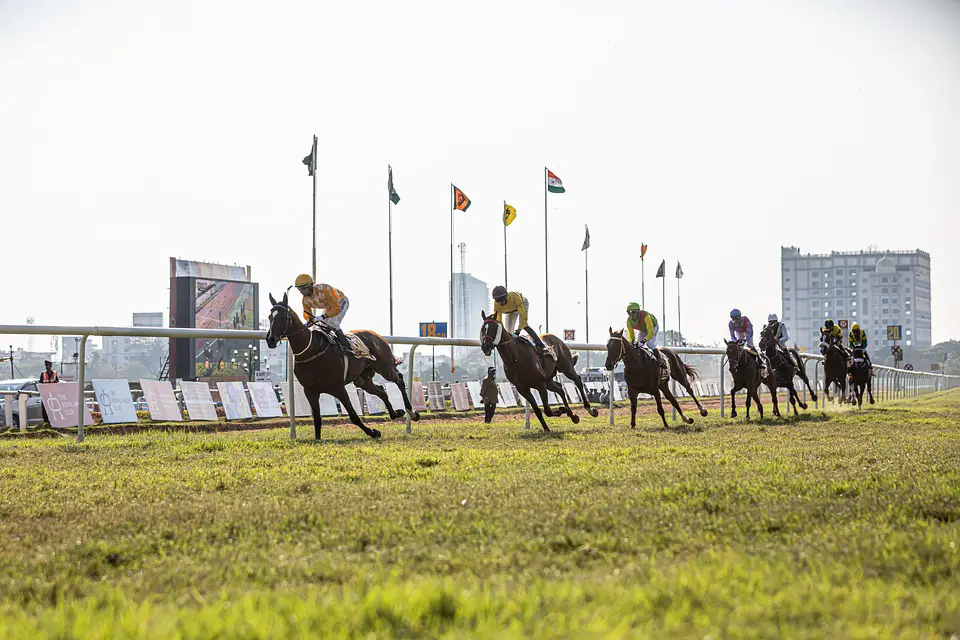The Dubai World Cup is one of the richest and most prestigious horse racing events globally. Held annually since 1996, it’s a spectacle that brings together top-class horses worldwide.
But here’s the thing – picking a winner is not just about luck. It’s an art, a science, and a bit of intuition combined. Analyzing the contenders thoroughly before placing your bets is crucial. It increases your chances of success and makes the whole experience even more exciting.
So, to get you started, allow us to share top tips on how to analyze winning horses in the Dubai World Cup.
Horse Racing Basics
Before we can delve into the specifics of analyzing horses for the Dubai World Cup betting, we must familiarize ourselves with some fundamental horse racing terminologies and the different types of races.
Essential Horse Racing Terminologies
Here are some key terms that every aspiring horse racing enthusiast should know:
- Furlong – This is a standard unit of measurement in horse racing, equivalent to one-eighth of a mile.
- Handicap – In a handicap race, horses carry varying weights based on their perceived abilities to ensure a more even competition.
- Form – This term refers to the record of a horse’s past performances, providing valuable insight into its consistency and potential.
- Maiden – A maiden horse is one that has not yet won in a race.
Understanding Different Types of Horse Races
Horse races are generally categorized into two types – flat races and jump races.
- Flat Races – These races are conducted on a level track without any hurdles or obstacles. The Dubai World Cup is a prime example of a flat race.
- Jump Races – Also known as steeplechases, these races involve horses navigating through various obstacles like hurdles or fences.
Factors to Consider When Analyzing Horses (+ Tips)
To accurately predict the outcome of a horse race, one must consider multiple factors. Four significant elements include the horse’s form, the jockey’s performance, the trainer’s track record, and the horse’s pedigree.
1. Horse’s Form
The form of a horse refers to its past racing performances. It is an essential tool for any serious punter as it provides in-depth information about how the horse has performed in different races, under varying conditions, and against different levels of competition.
Interpreting a horse’s form requires careful analysis. Look at the horse’s consistency, its adaptability to various distances and ground conditions, and its ability to handle the weight it carries during races. A horse with a consistent form is often more reliable than one that occasionally produces a brilliant performance.
2. Jockey’s Performance
A jockey’s role in horse racing is significant. They control the horse’s speed, decide when to push the horse, and navigate the race course. Their ability to make split-second decisions can often be the difference between winning and losing.
When evaluating a jockey’s performance, consider their win percentage, performance on specific tracks, and ability to perform under different conditions. A jockey with a high win rate and a good record on the track where the race is taking place could be a positive sign.
3. Trainer’s Track Record
Trainers are responsible for preparing the horses for races. They oversee the horse’s physical training, manage its diet, and ensure the horse’s overall well-being. Their expertise and commitment can significantly influence a horse’s performance.
A trainer’s track record is a crucial factor to consider. A trainer with a history of preparing winning horses, especially for specific types of races or conditions, could be a strong indicator of a horse’s potential success.
4. Horse’s Pedigree
A horse’s pedigree refers to its lineage, tracing back to its parents, grandparents, and beyond. It is a detailed record of a horse’s genealogy and can provide insights into inherited traits and potential.
Pedigree matters in horse racing because certain traits, including speed, stamina, and adaptability to various ground conditions, can be passed down through generations. A horse from a lineage of successful racers may have an innate advantage. It is also worth noting that some bloodlines have demonstrated more success in specific race types or conditions, further emphasizing the importance of pedigree in horse racing analysis.
Advanced Analysis Techniques
For those seeking a deeper understanding of horse racing, consider these advanced analysis techniques.
Speed Figures
Speed figures are statistical data that indicate a horse’s performance relative to the speed of the track and the competition it faces. They offer a quick way to compare the performance of horses across different races and tracks.
You can incorporate speed figures into your analysis by comparing them across horses in a particular race. For instance, a horse with consistently high-speed figures could be a strong contender as it has demonstrated the ability to perform well across different tracks and against varying competition.
Track Bias
Track bias refers to how certain track conditions favor specific positions or running styles. For instance, a track might favor horses running on the inside rail or those leading the pack. When analyzing a race, consider the track bias. If a horse’s running style matches the track’s bias, it may increase its chances of performing well.
Takeaway
As you prepare to watch the thrilling Dubai World Cup, remember that each piece of information contributes to the bigger picture. So, always look into the details and apply these tips, and you may find yourself enjoying not just the spectacle but also the intellectual challenge of analyzing horses in one of the world’s most prestigious horse races.
Disclosure: This article may contain affiliate links, meaning we could earn a commission if you make a purchase through these links.







